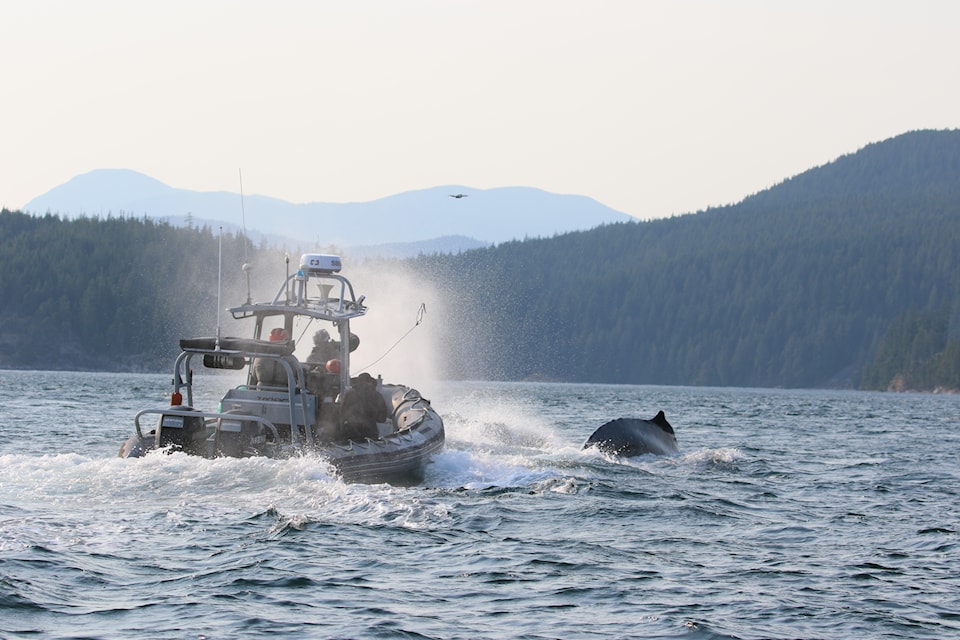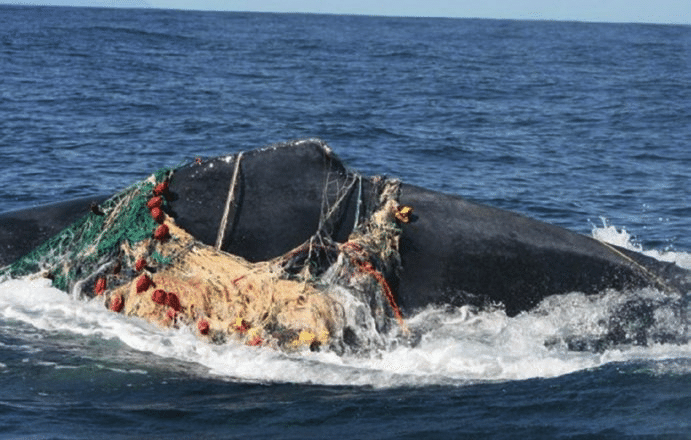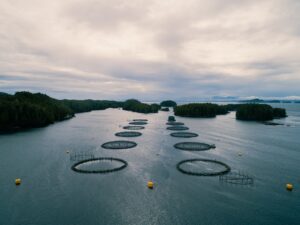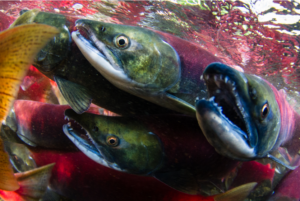Humpback whales Raza and Mogul are swimming free today thanks to the sharp eyes of two sisters on a kayak trip off Vancouver Island. Just east of Campbell River, the sisters noticed a pair of whales attached to each other, entangled in a prawn trap and showing distress by trumpeting and tail-slapping.
One of the sisters, teacher Tina Kuschel, is a former naturalist who knew to take photos and report the entanglement to the federal fisheries department Marine Mammal Response Network.
The next day, rescuers from DFO and Straitwatch (Cetus Research & Conservation Society) found the whales and used a drone to examine them.

“Our experts spent 5 hours removing 300 feet (92 meters) of fishing gear from the animals,” said DFO in a social media post about the rescue. “Once freed from the gear, the whales quickly swam away.”
“These poor whales were actually tethered together,” Paul Cottrell, DFO marine mammal coordinator, told a CBC reporter. “They were pretty agitated.”
“I’ve never had that experience. I’ve rescued a whale at a time, but this was crazy having two,” Cottrell told CBC.
Entanglement in fishing gear is a “major threat” to BC’s whales, warns DFO on its website, noting that research shows nearly half of all humpbacks in BC have scarring from being entangled.
“Gear can wrap around a whale’s body, tail, fins, and/or its mouth, affecting its ability to feed, travel, or breathe,” added DFO. “Gear entanglements can cause injury or death to whales.”

The rescue of the humpbacks was only possible because people on the coast spotted the whales and reported them to the Marine Mammal Response Network.
“We thank partners like Straitwatch, First Nations, the commercial whale watching industry, and the many concerned members of the public who help serve as eyes and ears on the water watching for marine mammals in distress,” said DFO.
If you see a marine animal in distress or someone harassing or abusing one, report it by phone at 1-800-465-4336, by VHF Radio on Channel 16, or email [email protected]. DFO’s website has more information and a reporting form. Make a note of the date, time, location, type of animal, behaviours of the animal, entangling gear, and visible injuries.
You can watch a video of the rescue here and read DFO’s social media post about the rescue here. The CBC report on the case and interview with Kuschel is here.




